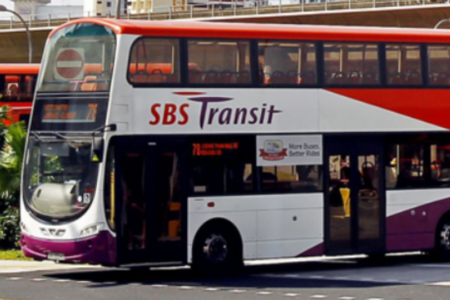The closure of non-essential businesses has heaped financial stress on many companies. Some may end up as bad debts.
With the COVID-19 pandemic still showing no signs of abating, the Singapore government has not let up on its “circuit breaker” measures to try to slow the spread of the virus.
While these measures are currently slated to be lifted on 4 May, the government has warned that they may be extended, depending on how the situation evolves.
The longer these measures are in place, the more the nation’s economy will suffer.
As cash flows dwindle, businesses will have to start laying off staff, leading to massive job losses for the retail, food and beverage, tourism and hospitality industries.
The situation begs the question of whether our local banks may suffer an avalanche of bad loans in the months to come.
Negative impact on businesses
Non-essential businesses that have been shut during this period earn zero revenue but still need to pay expenses for staff and rental.
Though the Government’s recent three rounds of Budget announcements have helped to alleviate some of the financial pressure, it should be noted that these are just temporary measures to tide businesses over the next two to three months.
Should the situation worsen, there could be a possibility of stricter measures being implemented. The current measures could even be extended indefinitely until the outbreak has been successfully contained.
Exposure to Hin Leong Trading
News recently reported that the three local banks, namely DBS Group Holdings Ltd (SGX: D05), United Overseas Bank Ltd (SGX: U11) and OCBC Limited (SGX: O39), are exposed to loans taken up by a top Singapore oil trading firm, Hin Leong Trading (HLT).
According to the article, DBS has the highest loan exposure to HLT at US$290 million, while OCBC and UOB are owed US$220 million and US$100 million, respectively.
The sharp plunge in oil prices, along with the COVID-19 pandemic, had brought one of Asia’s largest oil traders to its knees.
To put things in perspective, as of 31 December 2019, DBS had a loan book of S$362.4 billion, OCBC’s loan book stood at S$264.8 billion, and UOB’s at S$268.7 billion.
Hin Leong’s exposure works out to be around 0.11% of DBS’s loan book, 0.12% of OCBC’s and just 0.05% of UOB’s loans.
The exposure, fortunately, is neither large nor significant.
However, investors should be mindful of the risk of a domino effect from Hin Leong’s troubles impacting other firms within the same industry.
Mortgage loan deferments
The banks have also been busy in recent weeks dealing with other types of loans.
Not only have the banks been granting moratoriums on corporate loans held by financially-strapped borrowers, but they have also been granting bridging loans to help many smaller businesses stay afloat.
The Monetary Authority of Singapore (MAS) has implemented guidelines for mortgage loan deferment that kicked on 4 April.
As a result, DBS has also received 8,000 requests to defer home mortgage loan repayments as of 14 April and has approved around 40% of them. OCBC has received 3,000 such requests, while UOB has received nearly 4,500 applications.
Interest will continue to be charged on the principal amounts of these loans, but there will not be interest levied on the interest owed during this period.
Get Smart: Bad news may continue trickling in
From the corporate loan perspective, it seems the banks are starting to see some signs of bad loans popping up.
The problems may start to worsen in the coming months as more businesses come under acute stress.
For mortgage loans, the problem is contained for now as MAS has implemented measures to help tide borrowers over for now.
We can get a clearer idea of how bad things may be when the banks start to release data and commentary for the first quarter of the fiscal year 2020.
With share prices battered to multi-year lows, many attractive investment opportunities have emerged. In a special FREE report, we show you 3 stocks that we think will be suitable for our portfolio. Simply click here to scoop up your FREE copy… before the next stock market rally.
Disclaimer: Royston Yang owns shares in DBS Group Holdings Ltd.




